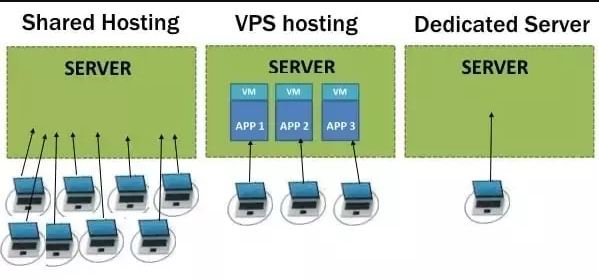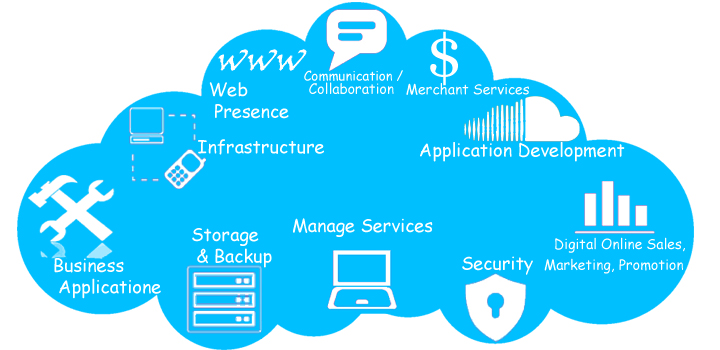As more and more businesses are going the digital way, web hosting services are witnessing a significant boom. Entrepreneurs and web developers are leveraging on the trend and discovering new ways to augment their existing income. One of the best ways of doing this is Cheap reseller hosting . Having said that, reseller hosting isn’t for anyone and everyone. It necessitates a proper understanding of the reseller hosting space.
In this comprehensive guide on reseller hosting, we will discuss everything related to reseller hosting: what reseller hosting is, how you can choose a reseller hosting company, what to consider when starting a reseller hosting business, what kind of investment is needed for a reseller business, how to get started with reseller hosting and how you can market a reseller business. So, let us begin without ado.
What is Reseller Hosting?
Reseller hosting is a kind of hosting model wherein you purchase web hosting services from a hosting company and then resell it to others in smaller portions. Here, you buy bandwidth and storage space from the hosting provider at a wholesale price and then sell it at considerably higher prices, making a profit margin in the process.
When running a reseller hosting plan, you can take benefit of the tools that will help you resell resources in a comfortable manner. You don’t need to have the technical knowledge of running servers. Here, you do not own physical servers. So, the task of maintaining bandwidth, hardware or issues pertaining to the server is mostly carried out by the company you purchased the cheap reseller hosting from.
When you or your clients face any technical problems, you just need to reach out to your hosting provider and they will take care of it.
Furthermore, most reseller hosting plans provide you with the tools that you need to manage your reseller account. You have complete access to the master control panel, the Web Host Manager (WHM) that lets you customize your hosting packages and offer your customers their own control panel.
Most of the companies selling reseller packages let you customize the hosting packages, set prices and run offers. You also get the privilege to choose features and specify the disc space and bandwidth for each hosting account. Plus, you can resell the services under your brand name.
This way, you can cater to the specific demands of each of your customers as you will be providing them with what they need. As far as your clients are concerned, they need to pay only for the services they are using.
How to Choose a Reseller Hosting Company?
Now that you have a fair idea of what reseller hosting is about, let us see how you can choose a reseller hosting company. The following factors should be considered:
1) Network Uptime: Make sure to check the network uptime report of the web hosting company. What happens when their service is down and what you need to do when their service is unavailable?
2) Technical Support: The hosting provider should offer 24*7 support all 7 days a week, 365 days a year.
3) Contract Period: It’s important to take into account the minimum contract period of the host. Also, if you need to renew the contract, the renewal process should be hassle-free.
4) Money-Back Guarantee: For any reseller business, a money-back policy should be in place so that if you do not like the service, you can get your money back.
5) Value for Money: While choosing a host, you need to assess what you are getting out of the service. At what prices does your host offer services? Which features are offered for free? Remember, you are there to make profits, so these things have to be taken into account.
6) Server Location: When starting a reseller business, a good idea is to host from multiple locations across the world. This will give you access to a wider client base.
In addition to these factors, it is important to remember that reselling space has a lot of competition. So, in order to compete against the well-established brands, you will need to market your business well (as discussed below).
How to Start a Web Hosting Reseller Business?
Once you have a host for your reselling business, your next step should be to decide what kind of hosting plan you would like to sell: Windows reseller hosting or Linux reseller hosting. And whichever plan you choose, here are some of the features you need to look for in your reseller plan:
1) cPanel: Your hosting provider should offer you a cPanel account to help your clients manage their accounts easily.
2) WHM/Plesk: In order to manage your clients’ accounts well, you need a Web Hosting Manager (WHM) panel in Linux reseller hosting and Plesk panel in Windows reseller hosting in your reseller package.
3) WHMCS: WHMCS is a web hosting automation platform that allows you to manage signups, provisioning, billing and other aspects of your reselling business.
4) Custom Name Servers: A name server is a specialized server on the internet that handles the queries from your computer about the services of the domain name. A custom name server lets you run your own name server to respond to DNS request for your domains.
5) Disk Space: Your host will offer you a certain amount of disc space. You need to check if this space will be sufficient for your clients.
What kind of Investment is required for a Reseller Hosting Business?
Like every kind of business, reseller hosting also needs some kind of investment to get started. There will be things you will need to invest in to sell your business effectively:
1) Domain Name: To start an online business, you need a domain name and Windows reseller hosting stands as no exception. In order to acquire a domain name, it is important to come up with a unique domain name and check if it is available on the web. You can then purchase the domain name and start building your website.
It is important to remember that certain domain names are more expensive than others. So, you can buy whichever domain falls within your budget.
2) Web Hosting: As already discussed, you will have to purchase web hosting for your reselling business.
3) Website: To reach out to the right set of audience, you will have to build a website with WordPress, which is one of the most popular content management systems out there. In addition, you will need a relevant theme to make your website look appealing. You can choose among any of the popular themes available on WordPress.
4) Additional Resources: Once you get your website live, you have to run your business effectively in order to make money from it. You need a robust customer support system in order to cater to your existing and prospective customers.
For reliable customer support, you need to have:
Google Analytics: Through a tool like Google Analytics, you can collect eye-opening insights about your website visitors including the pages they visited, the time they spent on your site and so on.
Live Chat Tool: With a live chat tool on your website, your customers can easily interact with your support executives and get immediate answers to their queries.
Customer Care Number: Your customers will always need someone to talk to if they are facing an issue with your service or if they are considering buying your reseller package. Having a round-the-clock customer care number with dedicated resources gives you an edge over the competition.
5) Marketing Costs: In addition to the costs incurred in setting up your business, you will have to spend money on promoting it effectively. To make your business stand out, you will need to market it through organic and paid means.
How to Get Started with Reseller Hosting?
Once you have chosen the right reseller hosting plan and invested in the right tools, here are a couple of things you need to do in order to set up and start your reseller hosting business.
1) Set up your cPanel/WHM: To begin with, you need a set up a basic cPanel account. Log into your WHM control panel and in the navigation section provided on the left, click on ‘Basic cPanel & WHM Setup’.
Here, you will be required to update the information required in ‘Contact information’ and ‘Basic Configuration’ sections. Fill in and save the information and move on to creating customer accounts.
2) Add new Customer Accounts: Every time a customer buys a hosting plan from you, you will have to add a new customer account. To start with, click on ‘Create a New Account’ from the navigation section on the left.
Enter the domain name of your customer. Assign them username and password to let them access their account. Fill in other details as needed. Select any one of the reseller hosting packages created in the drop-down list. Click create to create the account.
3) Manage your Hosting Package: To create a new hosting package in your reseller account, click on ‘Add a package’ under ‘Packages’ section provided on the left. Assign a name to the package.
Under ‘Resources’, define how many of each item (disc space, bandwidth, etc.) the package offers. Under ‘Settings’, update all the settings. Click on the tab ‘Add’ to create the package. In this section, you can edit a package, add or delete features.
How to Market your Reseller Hosting Business?
In order to make your prospects aware of your Windows reseller hosting business, it’s essential that you market it well. Here are a couple of channels you can leverage to market your reseller hosting business:
1) Blogging
Blogging is one of the best ways to attract the right set of audience. You can market your content through your blogs and generate promising prospects. All you need to know is what to write about.
If you publish posts that your targeted audience finds useful, they will be drawn to your website and the services you offer. Plus, if you target the right keywords and incorporate them properly in your posts, your website will rank higher in the search results and become more visible to your prospects.
By consistently publishing content that your audience finds informative or engaging, you can build a list of prospects to which you can market your reseller services.
2) Email Newsletters
Another way to keep your website visitors hooked to your content is email newsletters. If you create blogs or YouTube videos on a regular basis, you can summarize your content in a compelling newsletter and share it with your subscribers once a month or once every 2-3 months. This, in the long run, can help you gain a loyal follower base.
3) Website Directories
A website directory has data organized into categories. Here, the web pages are listed by categories and subcategories and not by keywords. To make your website rank high in the category of your choice, you can make a bid. This will help online users interested in reseller hosting services find you.
4) Hosting Forums
A forum is an online discussion board where users ask questions, answer queries and discuss topics of mutual interest. As a reseller, you can take part in discussions pertaining to Windows reseller hosting.
You can answer questions such as how reseller hosting works, what reseller hosting is and what benefits can a user have by buying from you. This way, you can gain the attention of people interested in buying web hosting services.
5) Social Media
In this age when social media is ubiquitous, going social is one of the best ways to make yourself visible. Facebook, Twitter and LinkedIn are some of the marketing channels that you can capitalize on in order to get your message across.
Social media offers a lot of engagement opportunities that you will not find anywhere else. By consistently posting informative and interesting content through your social media posts, you can drive traffic to your landing pages, blog and website.
6) Google Ads
If you can spend a few bucks to target the right group of people, you should leverage the power of advertising i.e. Google Ads to market your reselling business. By using the right set of keywords in your ad, you can reach your prospects much more quickly than through organic means. The right mix of organic and paid marketing channels can help you gain a better return on investment (RoI).
The Way Forward
Once you have kick-started your reseller hosting business and covered your initial expenses, you can reinvest your earnings to attract more customers and make a profit. And as long as you provide your customers with exceptional service, they will stick with you.
Hope this article offers a good understanding of what reseller hosting is all about. Want more such articles? Please let us know in the comment section. Thanks for reading!















